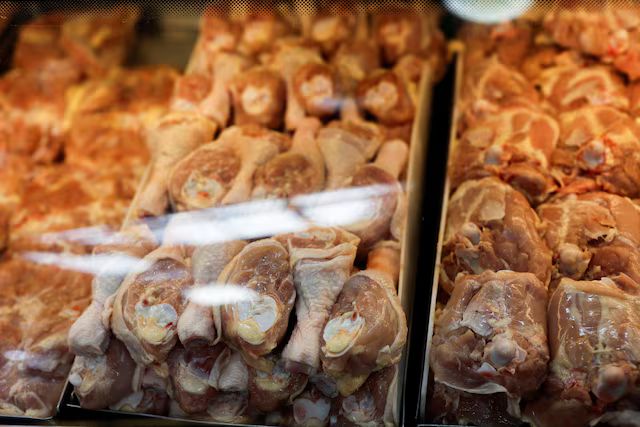
Market Pulse: UK Meat Consolidation, EU Reopens to Brazilian Poultry, and Spanish Lamb Prices Spike
Analyzing a major UK meat acquisition, the reopening of a key poultry trade route, and a disease-driven crisis in the Spanish lamb market.
Paramount Retail Group Acquires DB Foods to Reshape UK Meat Industry
In a landmark move for the British meat sector, Paramount Retail Group has announced its acquisition of DB Foods, one of the UK's largest meat wholesalers and processors. The deal brings together two industry heavyweights, with the stated goal of creating a more streamlined and powerful entity to serve the UK market. This consolidation aims to enhance efficiency, scale, and market reach, positioning the new, larger group as a dominant force in the national meat supply chain.
What this means: This acquisition signals a significant consolidation trend within the UK meat industry. The newly formed entity will wield considerable influence over procurement, processing, and distribution, potentially leading to increased efficiencies but also reducing competition. The move will alter the supplier landscape for major retailers and foodservice companies across Britain.
What to do:
UK Meat Buyers (Retail & Foodservice): Re-evaluate your supply chain and be prepared to engage with a new, larger supplier. This consolidation could present opportunities for integrated partnerships but may also limit alternative sourcing options.
Competing UK Wholesalers/Processors: Assess your market position considering this new powerhouse. Smaller players may need to focus on specialised, niche markets or seek strategic alliances to remain competitive.
Livestock Farmers: Monitor how this consolidation impacts the procurement process and farm-gate prices. The increased purchasing power of a single, larger entity could shift negotiation dynamics.
EU to Reopen Market for Brazilian Chicken After Bird Flu Ban
The European Union has announced it will lift the temporary ban on chicken meat imports from Brazil, which was initially imposed due to concerns over avian influenza outbreaks. The decision reopens a vital trade corridor, allowing one of the world's largest poultry exporters to resume shipments to the major EU market. This move is expected to quickly restore a significant volume of poultry products to the European supply chain.
What this means: The return of Brazilian chicken to the EU will increase the overall supply of poultry meat, putting downward pressure on prices across the continent. European poultry producers will face renewed and intense competition from these lower-cost imports. For Brazilian exporters, this restores access to a critical, high-value market, providing a significant boost to their industry.
What to do:
EU Poultry Producers: Prepare for a more competitive market environment. Emphasize points of differentiation such as local sourcing, high animal welfare standards, and quality assurance to protect your market share.
Purchasers and Importers: Anticipate greater availability and potentially more favorable pricing for chicken. Review your sourcing strategies to leverage the re-entry of Brazilian products into the market.
Brazilian Exporters: Focus on ramping up production to meet EU demand while rigorously maintaining biosecurity protocols to ensure trade remains open and prevent future disruptions.
Spain: Bluetongue Outbreak Cuts Lamb Production by 30%, Raising Prices
Spain's sheep meat sector is grappling with a severe crisis caused by an outbreak of Bluetongue disease. The insect-transmitted virus has devastated flocks, leading to a drastic 30% reduction in national lamb production. This sharp decline in supply has inevitably resulted in a significant spike in lamb prices, putting immense pressure on both producers and consumers.
What this means: The substantial drop in Spanish lamb output creates a significant supply deficit not only within Spain but across the EU. Prices are expected to remain elevated for the near future as the industry struggles to recover. This supply gap presents a potential opportunity for other lamb-producing nations to increase their exports to the Spanish and wider EU markets.
What to do:
Spanish Retailers and Foodservice: Brace for continued high wholesale prices and potential shortages of domestic lamb. It may be necessary to communicate these market realities to consumers.
Lamb Buyers across Europe: Actively seek alternative sources to fill the supply gap left by Spain. Exporters in countries like Ireland, the UK, and even New Zealand could see a surge in demand.
Sheep Farmers (outside Spain): Stay informed on EU market prices and demand. The crisis in Spain could create favorable export opportunities and support stronger prices for your livestock.
Sources:
